Sivasubramanium Bhavani
MULTIPAR: Supervised Irregular Tensor Factorization with Multi-task Learning
Aug 09, 2022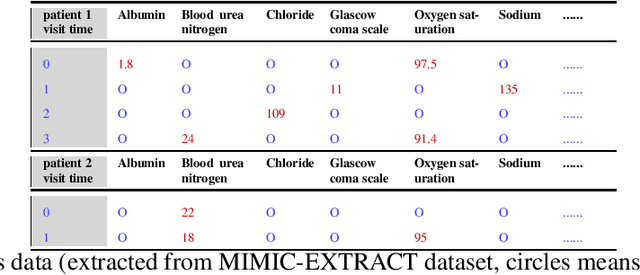
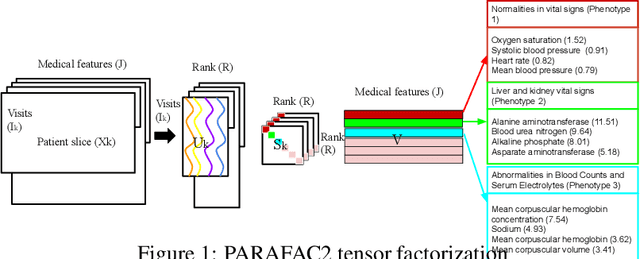
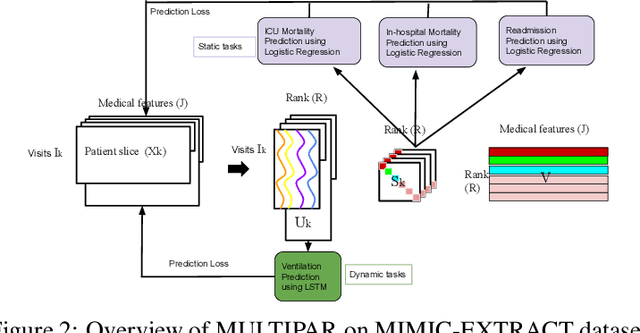

Abstract:Tensor factorization has received increasing interest due to its intrinsic ability to capture latent factors in multi-dimensional data with many applications such as recommender systems and Electronic Health Records (EHR) mining. PARAFAC2 and its variants have been proposed to address irregular tensors where one of the tensor modes is not aligned, e.g., different users in recommender systems or patients in EHRs may have different length of records. PARAFAC2 has been successfully applied on EHRs for extracting meaningful medical concepts (phenotypes). Despite recent advancements, current models' predictability and interpretability are not satisfactory, which limits its utility for downstream analysis. In this paper, we propose MULTIPAR: a supervised irregular tensor factorization with multi-task learning. MULTIPAR is flexible to incorporate both static (e.g. in-hospital mortality prediction) and continuous or dynamic (e.g. the need for ventilation) tasks. By supervising the tensor factorization with downstream prediction tasks and leveraging information from multiple related predictive tasks, MULTIPAR can yield not only more meaningful phenotypes but also better predictive performance for downstream tasks. We conduct extensive experiments on two real-world temporal EHR datasets to demonstrate that MULTIPAR is scalable and achieves better tensor fit with more meaningful subgroups and stronger predictive performance compared to existing state-of-the-art methods.
Communication Efficient Tensor Factorization for Decentralized Healthcare Networks
Sep 03, 2021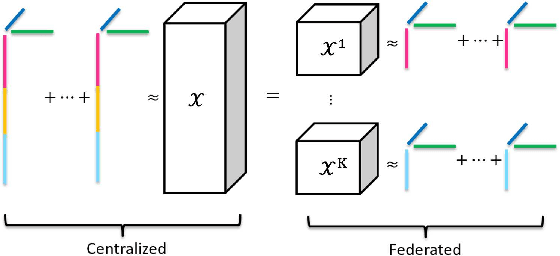
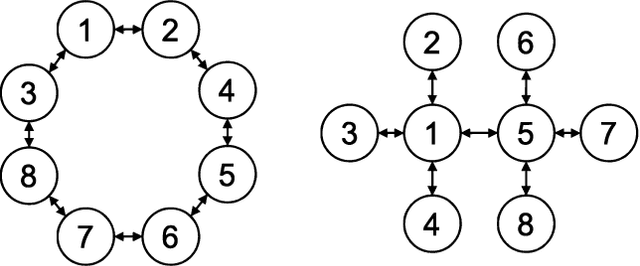
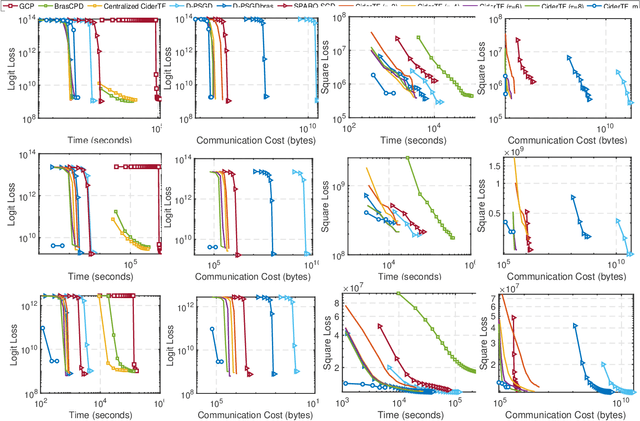
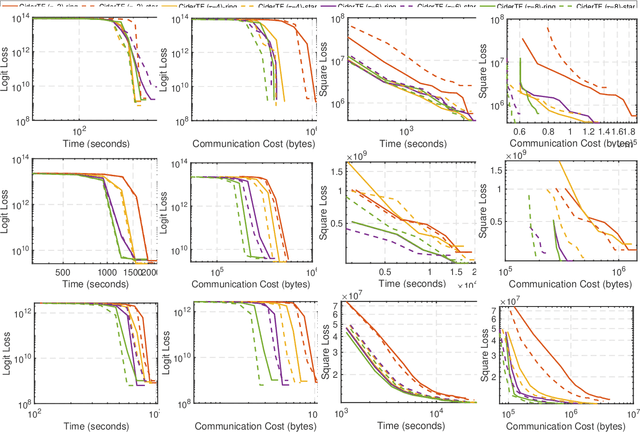
Abstract:Tensor factorization has been proved as an efficient unsupervised learning approach for health data analysis, especially for computational phenotyping, where the high-dimensional Electronic Health Records (EHRs) with patients history of medical procedures, medications, diagnosis, lab tests, etc., are converted to meaningful and interpretable medical concepts. Federated tensor factorization distributes the tensor computation to multiple workers under the coordination of a central server, which enables jointly learning the phenotypes across multiple hospitals while preserving the privacy of the patient information. However, existing federated tensor factorization algorithms encounter the single-point-failure issue with the involvement of the central server, which is not only easily exposed to external attacks, but also limits the number of clients sharing information with the server under restricted uplink bandwidth. In this paper, we propose CiderTF, a communication-efficient decentralized generalized tensor factorization, which reduces the uplink communication cost by leveraging a four-level communication reduction strategy designed for a generalized tensor factorization, which has the flexibility of modeling different tensor distribution with multiple kinds of loss functions. Experiments on two real-world EHR datasets demonstrate that CiderTF achieves comparable convergence with the communication reduction up to 99.99%.
 Add to Chrome
Add to Chrome Add to Firefox
Add to Firefox Add to Edge
Add to Edge